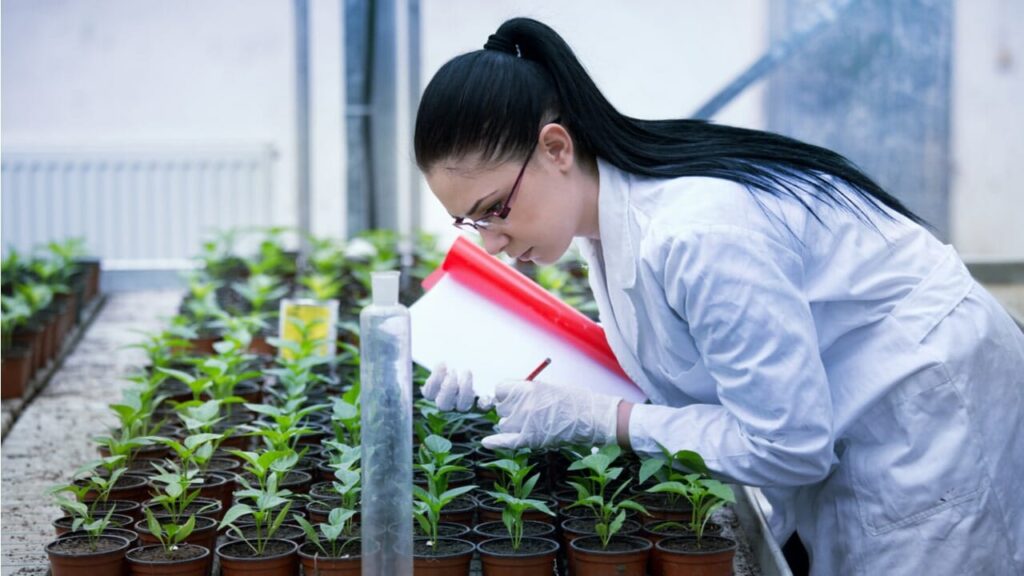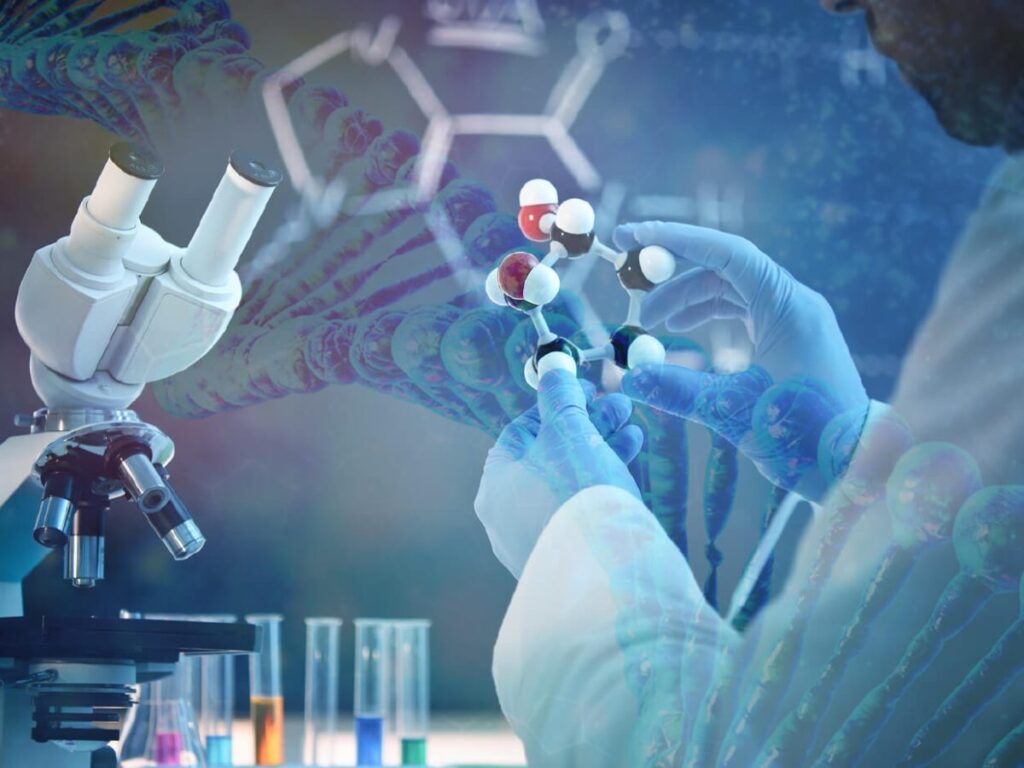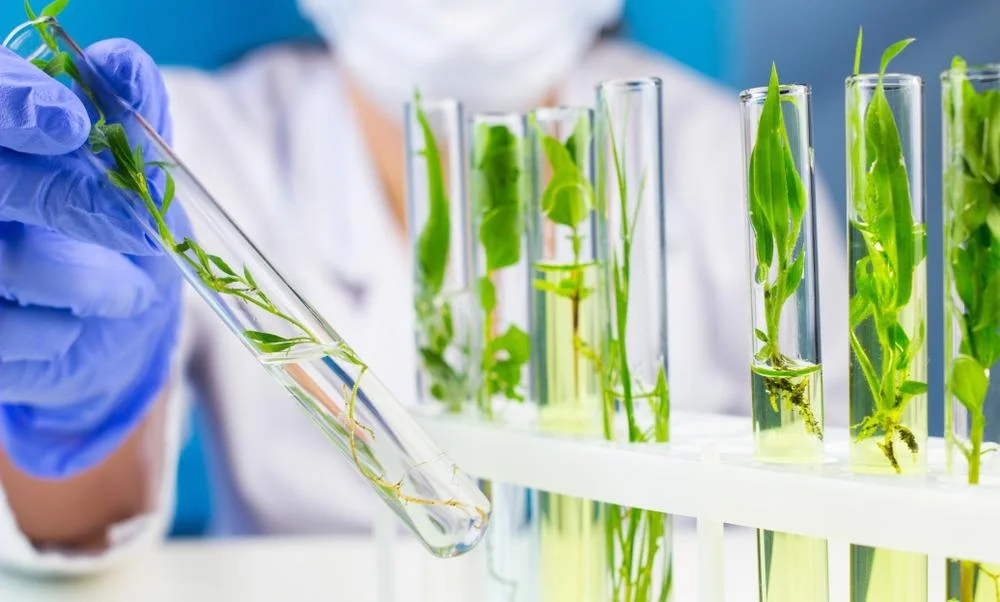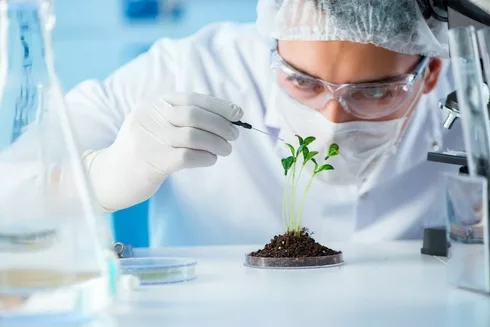Biotechnology offers many exciting subjects. Genomics and Bioinformatics study genes and use computers to analyze biological data, vital for personalized medicine. Molecular Biology focuses on DNA and proteins, key for genetic engineering and new medicines. Bioprocess Engineering uses engineering to produce biological products like medicines and biofuels.
Immunology studies the immune system, crucial for developing vaccines. Microbial Biotechnology uses microbes for processes like making antibiotics and cleaning the environment. Biopharmaceuticals involve creating drugs from biological sources. Synthetic Biology designs new biological systems, useful in medicine and agriculture.
Agricultural Biotechnology improves plants and animals for farming. Choosing the best subject depends on your interests, career goals, and industry demand, so research and professional advice are essential.
What are the key subjects in biotechnology?

Biotechnology is a broad field that encompasses various subjects, each contributing to the understanding, manipulation, and application of biological systems for practical purposes. Some key subjects within biotechnology include:
Molecular Biology
- Study of DNA replication, transcription, and translation.
- Investigation of gene expression, regulation, and epigenetics.
- Understanding of genetic recombination, DNA repair mechanisms, and mutagenesis.
- Application of molecular techniques such as PCR (Polymerase Chain Reaction), DNA sequencing, and gene editing (e.g., CRISPR-Cas9).
Genetics and Genomics
- Exploration of inheritance patterns, genetic diseases, and population genetics.
- Genome sequencing, annotation, and comparative genomics across different species.
- Analysis of gene function, evolution, and genetic engineering for various applications.
- Understanding of genetic disorders, gene therapy, and personalized medicine.
Biochemistry
- Investigation of enzyme kinetics, biochemical pathways, and metabolic regulation.
- Study of protein structure, folding, and post-translational modifications.
- Analysis of biochemical reactions using techniques like chromatography, mass spectrometry, and spectroscopy.
- Application of recombinant DNA technology for protein expression and purification.
Cell Biology
- Examination of cell structure, organelle function, and cellular processes.
- Study of cell signaling pathways, cell cycle regulation, and apoptosis.
- Investigation of stem cells, tissue engineering, and regenerative medicine.
- Application of cell culture techniques for biopharmaceutical production and research.
Microbiology
- Study of microbial diversity, taxonomy, and ecology.
- Exploration of microbial physiology, metabolism, and host-pathogen interactions.
- Application of microbiological techniques for bioremediation, food production, and vaccine development.
- Use of genetic engineering to modify microbes for industrial processes and biotechnology applications.
Bioprocessing and Biomanufacturing
- Development of fermentation processes for the production of biofuels, pharmaceuticals, and industrial enzymes.
- Optimization of bioreactor design, operation, and downstream processing.
- Scale-up and commercialization of biotechnological products.
- Integration of process engineering, microbiology, and biochemistry for efficient production.
Biomedical Engineering
Design and development of medical devices, prosthetics, and diagnostic tools. Exploration of biomaterials, tissue engineering, and drug delivery systems.
Application of imaging techniques such as MRI, CT scans, and PET scans for medical diagnosis. Collaboration with clinicians and healthcare professionals to address clinical needs and improve patient outcomes.
Bioinformatics
Analysis of biological data using computational tools and algorithms.
Management and mining of genomic, proteomic, and transcriptomic databases.
Prediction of protein structure, function, and interaction networks.
Development of software tools and databases to facilitate biological research and data interpretation.
Biophysics
- Investigation of physical properties of biomolecules such as size, shape, and electrical charge.
- Study of biomolecular forces, molecular dynamics, and protein folding kinetics.
- Application of techniques like X-ray crystallography, NMR spectroscopy, and atomic force microscopy to study biological systems.
- Understanding of biophysical principles underlying drug-receptor interactions and membrane transport processes.
Ethics and Regulatory Affairs
Examination of ethical considerations related to biotechnological research, including privacy, consent, and equity.Compliance with regulations governing the use of biological materials, human subjects, and genetically modified organisms.
Assessment of risks and benefits associated with biotechnological innovations.Engagement with policymakers, stakeholders, and the public to ensure responsible and transparent application of biotechnology.
What are the main areas of study in biotechnology?

In biotechnology, various areas of study focus on different aspects of manipulating biological systems for practical applications. Here are some of the main areas of study within biotechnology:
Medical Biotechnology
Development of biopharmaceuticals such as vaccines, antibodies, and recombinant proteins. Gene therapy for treating genetic disorders and other diseases.
Regenerative medicine and tissue engineering for repairing or replacing damaged tissues and organs.
Diagnostic tools and medical devices for disease detection and monitoring.
Agricultural Biotechnology
Crop improvement through genetic engineering for traits such as pest resistance, herbicide tolerance, and increased yield.
Development of genetically modified (GM) crops with enhanced nutritional content or tolerance to environmental stresses.
Plant tissue culture and micropropagation for rapid multiplication and propagation of elite plant varieties.
Biotechnological approaches for sustainable agriculture, including biofertilizers and biopesticides.
Industrial Biotechnology
Production of biofuels such as ethanol, biodiesel, and biogas from renewable feedstocks like biomass and microalgae.
Biocatalysis and enzyme engineering for the synthesis of chemicals, pharmaceuticals, and specialty products.
Bioremediation of environmental pollutants through the use of microorganisms or enzymes to degrade or detoxify contaminants.
Bioprocessing and fermentation for the production of food ingredients, flavors, and fragrances.
Environmental Biotechnology
Bioremediation of contaminated soil, water, and air using microorganisms, plants, or enzymes to degrade pollutants.
Waste treatment and resource recovery through anaerobic digestion, composting, and microbial fermentation.
Biologically assisted phytoremediation for the removal of heavy metals and organic pollutants from the environment.
Environmental monitoring and assessment using biotechnological tools for detecting and quantifying pollutants.
Biomedical Engineering:
Design and development of medical devices, prosthetics, and implants for diagnosis, treatment, and rehabilitation.
Biomaterials engineering for the design of biocompatible materials for implants, tissue scaffolds, and drug delivery systems.
Biomechanics and bioimaging for studying the structure and function of biological tissues and organs.
Bionics and neuroengineering for developing artificial organs and interfaces between biological and artificial systems.
Food and Beverage Biotechnology
Improvement of food crops through genetic modification for enhanced nutritional content, flavor, and shelf life.
Fermentation technology for the production of fermented foods and beverages such as beer, wine, yogurt, and cheese.
Food safety and quality assurance through the use of biotechnological methods for pathogen detection and control.
Functional foods and nutraceuticals with health-promoting properties derived from bioactive compounds.
Bioinformatics and Computational Biology
Analysis and interpretation of biological data using computational tools and algorithms.
Genome sequencing and annotation, transcriptomics, proteomics, and metabolomics data analysis.
Molecular modeling and simulation to predict protein structures, interactions, and drug binding.
Systems biology approaches for modeling complex biological systems and networks.
How to choose the best subject in biotechnology?

Choosing the best subject in biotechnology involves a multifaceted approach. First, assess your interests to identify specific areas within biotechnology that captivate you, whether it’s medical applications, environmental solutions, or agricultural advancements. Evaluate your career goals by considering the available career paths in each area and how they align with your long-term professional aspirations. Reflect on your educational background, focusing on your strengths in subjects like biology, chemistry, or engineering, and how they might support your success in different biotechnology fields.
Additionally, explore industry trends to identify subjects with high demand and innovative potential. Seek mentorship and advice from professors, industry professionals, and career advisors to gain insights into various subjects and their real-world applications. Review academic programs to ensure the curriculum and research opportunities match your interests and career objectives.
Investigate the job market by looking into job opportunities, salary ranges, and employment rates in different biotechnology sectors to identify areas with strong prospects. Lastly, consider your personal fit, including your values, work-life balance preferences, and the type of work environment you thrive in, to choose a subject that best suits your lifestyle. This comprehensive approach will help you make an informed decision about the best subject in biotechnology for you.
FAQ’s
What is genomics and bioinformatics?
Genomics is the study of entire genomes, including their structure, function, and evolution, while bioinformatics involves the use of computational tools and algorithms to analyze and interpret biological data.
What is molecular biology?
Molecular biology is the study of biological processes at the molecular level, focusing on the structure, function, and interactions of biomolecules such as DNA, RNA, and proteins.
What is bioprocess engineering?
Bioprocess engineering involves the development and optimization of processes for the production of biopharmaceuticals, biofuels, enzymes, and other bioproducts using living organisms or their components.
What is immunology?
Immunology is the study of the immune system, including its structure, function, and interactions with pathogens, as well as the development of vaccines and immunotherapies.
What is microbial biotechnology?
Microbial biotechnology involves the use of microorganisms such as bacteria, viruses, fungi, and protozoa for various biotechnological applications, including bioremediation, food production, and pharmaceuticals.
What are biopharmaceuticals?
Biopharmaceuticals are medicinal products derived from biological sources, including proteins, antibodies, vaccines, and gene therapies, used for diagnosis, prevention, and treatment of diseases.
What is synthetic biology?
Synthetic biology is an interdisciplinary field that combines principles from biology, engineering, and computer science to design and construct novel biological systems, organisms, or molecules for specific purposes.
What is agricultural biotechnology?
Agricultural biotechnology involves the use of genetic engineering and other biotechnological tools to improve crop plants and livestock for increased yield, pest resistance, nutritional content, and environmental sustainability.
Final Words
Biotechnology offers many interesting subjects to study. Each area, such as genomics and bioinformatics, molecular biology, bioprocess engineering, immunology, microbial biotechnology, biopharmaceuticals, synthetic biology, and agricultural biotechnology, has its own unique importance and career opportunities. Choosing the best subject depends on your personal interests, career goals, and the demand in the job market.
It’s important to do some research and talk to professionals in the field to help you make the best choice. Ultimately, the right subject for you will be the one that excites you the most and aligns with your aspirations.
